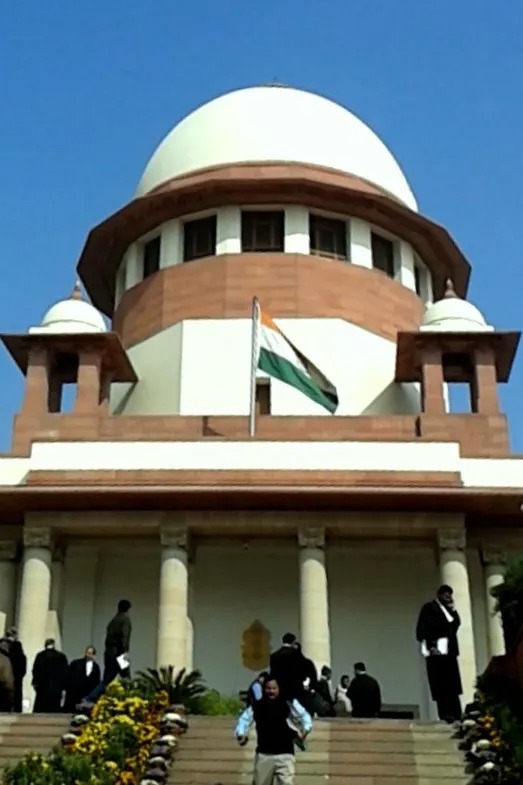K. Kannan, J.@mdashThe suit for injunction on the basis of prior possession in Khasra Nos. 1171, 1172 and 1119 was resisted by a defendant on a plea that he was the owner of the property, he having purchased the property through registered sale deed from its original owner. The trial Court secured the assistance of a Local Commissioner to inspect the property, who gave a report that the petitioners/plaintiffs were in possession. The trial Court dismissed the suit finding that the plaintiffs had not established the identity of the property with the property inspected by the Commissioner and held that the defendant had purchased the property which was in Khasra No. 1119 which was really the property in dispute. In appeal to the District Court, the trial Court''s decision was set aside and the Court made elaborate reference to the Commissioner''s report and the existence of hut and some cattle grazing in the property which the plaintiffs claimed as belonging to them. The Court found that the defendant had himself not denied the existence of a hut nor did he claim the hut to have been put up by him. The Court, therefore, reversed the finding of the trial Court and allowed the appeal filed by the plaintiffs. The second appeal has been admitted already but I have now framed a substantial question of law on the primacy of revenue entries to a claim for actual physical possession over assertions of parties letting in evidence regarding the characteristics of such possession. There were surely certain flaws in relying on the Commissioner''s report by the appellate Court for his assessment of plaintiffs as parties in possession. A Court cannot abdicate its judicial function by allowing the Commissioner to make an inspection of the property and assess the issue of possession. The Commissioner''s report shall always be restricted to examining any specific physical characteristics which will help the Court in coming to a decision, one way or the other about the person in possession. While a Commissioner could be justified in noting down the existence of a hut or the presence of cattle, he will be unjustified in gathering oral evidence from witnesses and making a reference to the same in his report. Such a conduct would amount to exceeding his brief. Unless the warrant of possession itself had authorized him to examine witnesses, the Commissioner has no power to undertake such an exercise. In this case, the Commissioner had admitted in the cross-examination when he examined some witnesses to support his own report and that further he had not had the identity of the property established through any village official or with reference to any village records. The lower appellate Court, however, made slight of this admission by reasoning that the identity of the property itself was not in dispute. The defendant had actually complained that no notice of Commission had been issued to him before his inspection. This also, the Court observed, ought to be a mistake, for, the Commissioner mistook the defendant, who was present in place as one of the plaintiffs and had actually made reference to his name in his report as a person present at the spot.
2. In this case, more significantly, the defendant did not go as far as to state that there was no inspection by the Commissioner. He was also not prepared to say that the report referred to some other property which was not in dispute. The Commissioner''s report making reference to the hut was not even contradicted by filing an objection to the same. Apart from this, there had been evidence of the plaintiffs-Ram Chander and Ram Baksh, both of whom spoke about their possession with reference to the hut and the cattle. The defendant in his evidence stated that he had not measured the length and width of the disputed land before his purchase and also admitted that ever since he purchased the land there was a constructed hut. He merely stated that dilapidated shed was constructed there and cattle were tethered there. He was not prepared to state that he constructed the hut or that his cattle were grazing there. Admittedly, the property had not been demarcated and there is no specific information about the nature of ownership claimed in relation to the property. Although khasra girdwaris stood in the name of the defendant and his predecessor and the jamabandi had also shown his name, when the appellate Court took a decision that the plaintiff was in possession of the property on the basis of existence of huts and cattle, I will take this finding to be essentially a question of fact. Even if I may discard the Commissioner''s report as regards his report on possession as unjustified and without jurisdiction, I will still hasten to justify the appellate Court''s finding since even without reference to Commissioner''s report regarding possession, his report gave some characteristics of the property in relation to the existence of features of the plaintiffs owning house in the immediate vicinity of the suit property and there was oral evidence regarding the manner of user by the plaintiffs. This itself, according to me, would be sufficient to secure a decision in favour of the plaintiffs. It should have been perfectly tenable for the appellate Court to reject the plaintiffs'' case and dismissed the appeal also by merely relying on the revenue entries and upholding the contention of the defendant. If he did not do so and there are two inferences possible from the given set of circumstances, I would follow the reasoning adopted by the lower appellate Court which is a final court of appeal on facts.
3. The appeal by the defendant is, therefore, dismissed. The defendant, however, will not be barred from instituting his own suit and prove his title to the property by a proper demarcation and by proving the entitlement to the property in the manner required by law. If such a suit is filed, the plaintiff cannot be heard to contend that this decision or the decision of the lower appellate Court constitute res judicata or any other bar. This caution becomes essential, for, a similar liberty was also made by the Supreme Court in a situation similar to the one that obtains here in the adjudication rendered in
4. I have difficulty in finding whether the defendant-appellant had established the ownership to the property and whether the property in suit was really the property covered under the sale deed, with the quality of evidence let in before the trial court. The Commissioner''s report was merely on the basis of physical inspection of the spot which the party identified as the disputed property. It does not authoritatively bring out the identity of property with reference to khasra number by reference to any demarcation done or any official records. I, therefore, hold, even while dismissing the second appeal, that the revenue entries cannot at all times displace the oral evidence in the manner that was brought out and which was accepted by the lower appellate Court. But, he shall not be barred from bringing his own suit for declaration of title and secure the relief in accordance with law if he can establish his title to the suit property. The second appeal is dismissed with the above observations. No costs.

